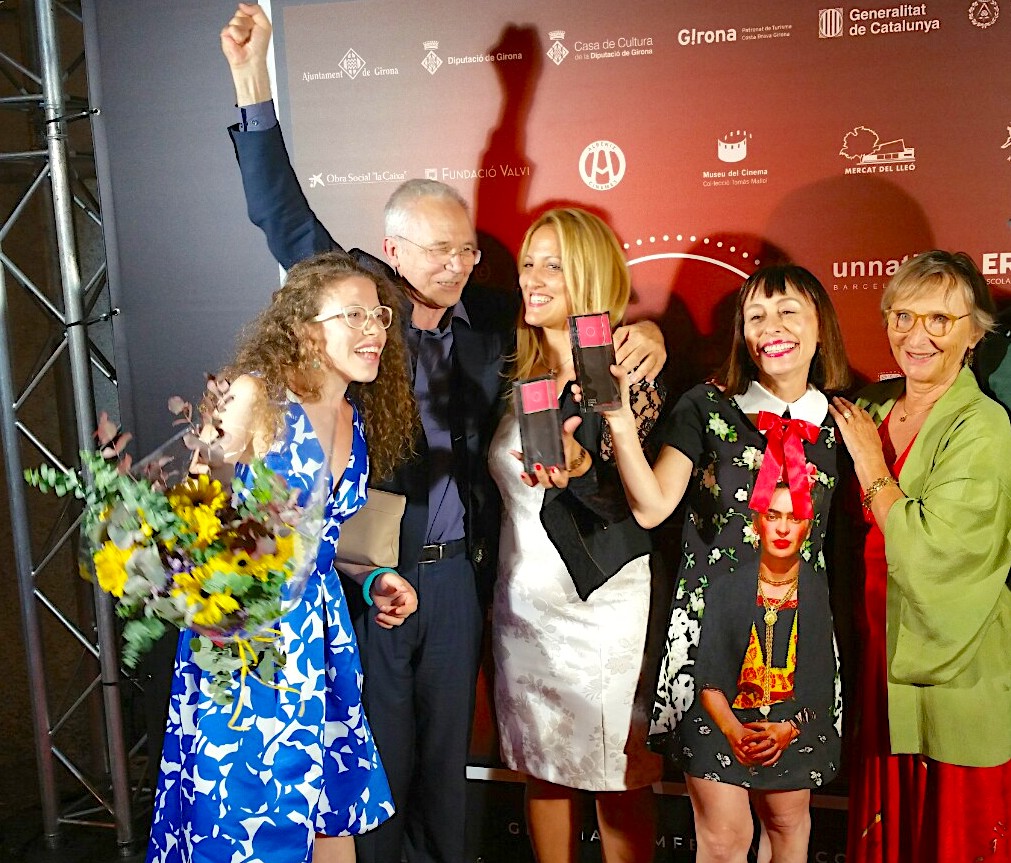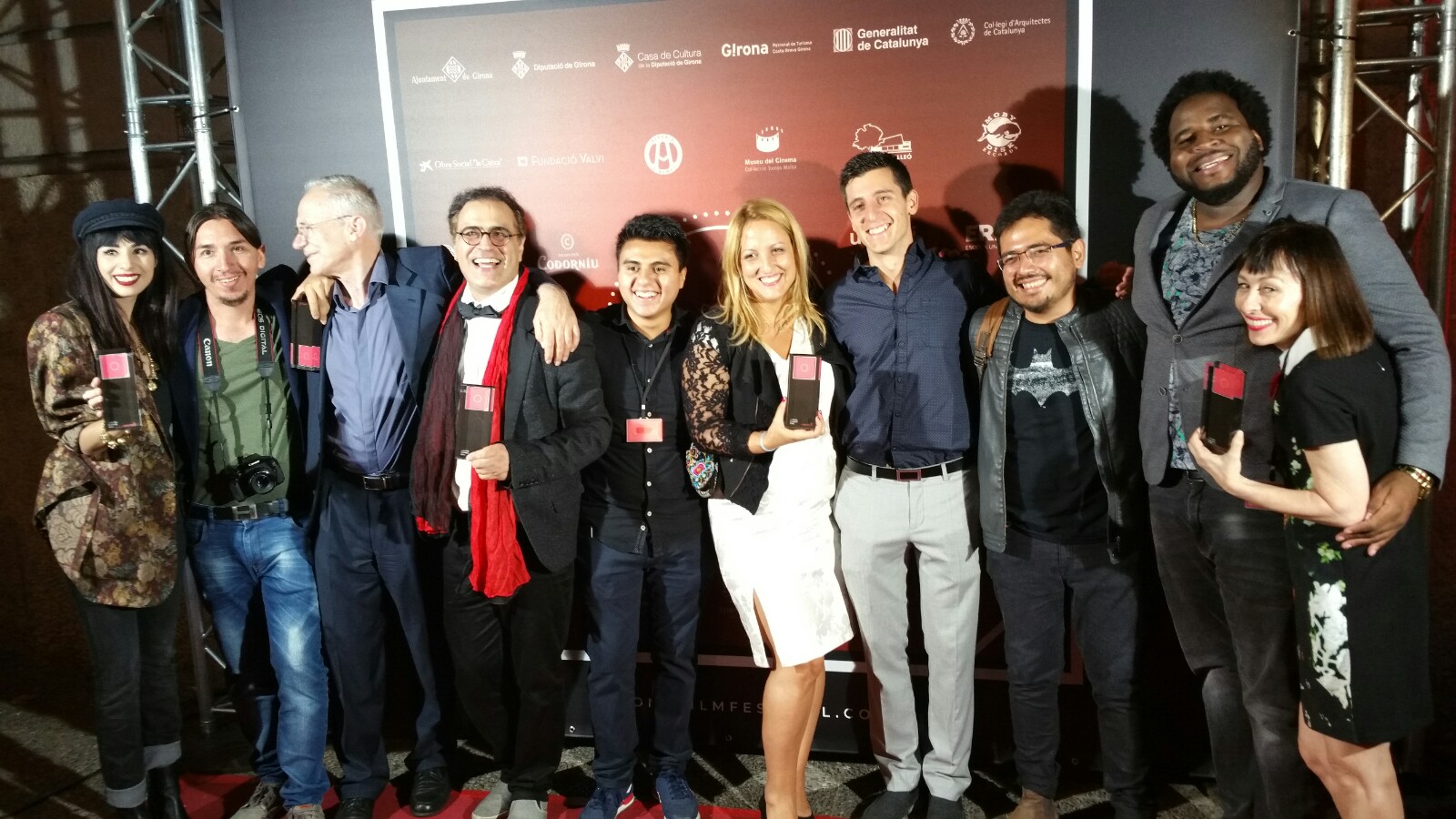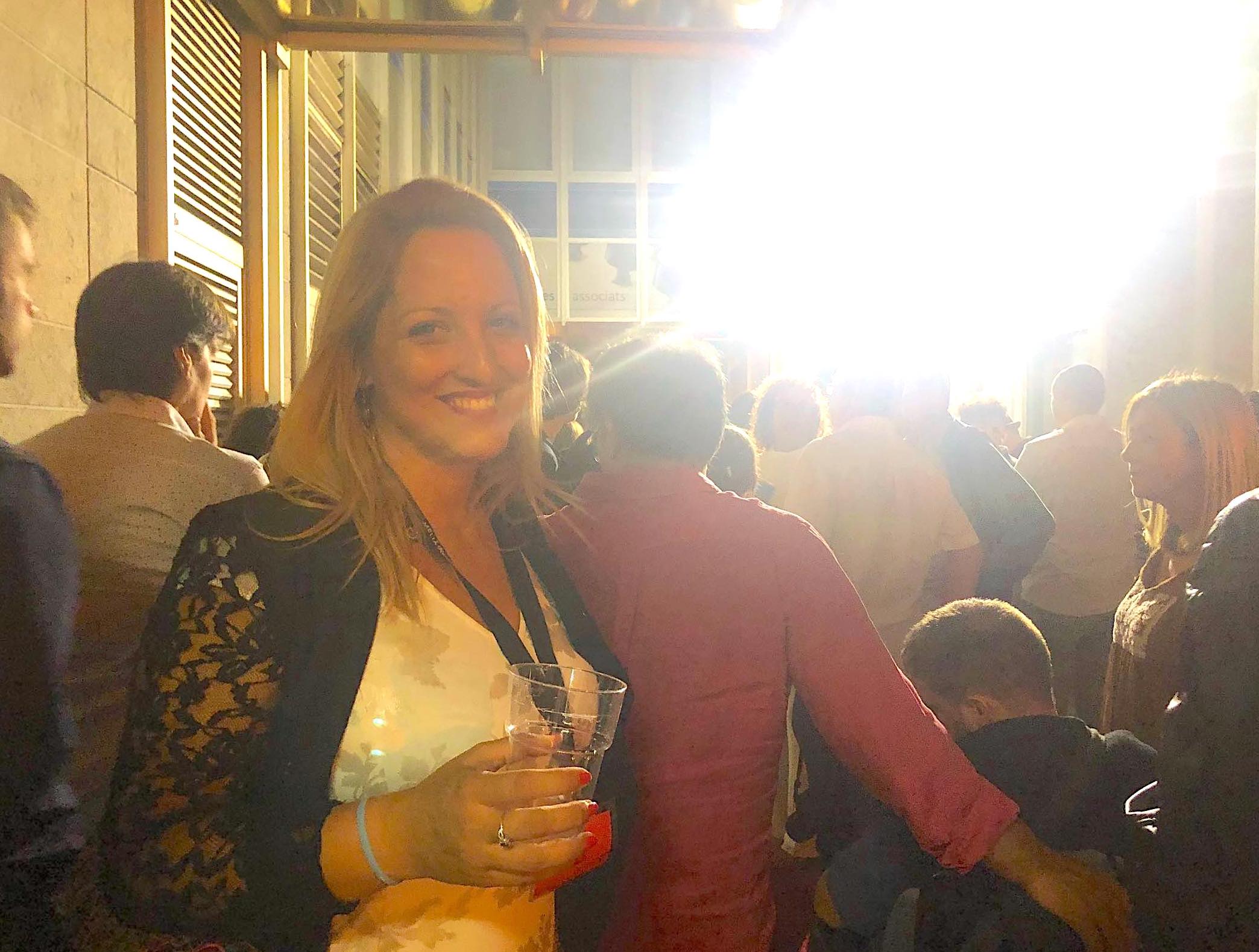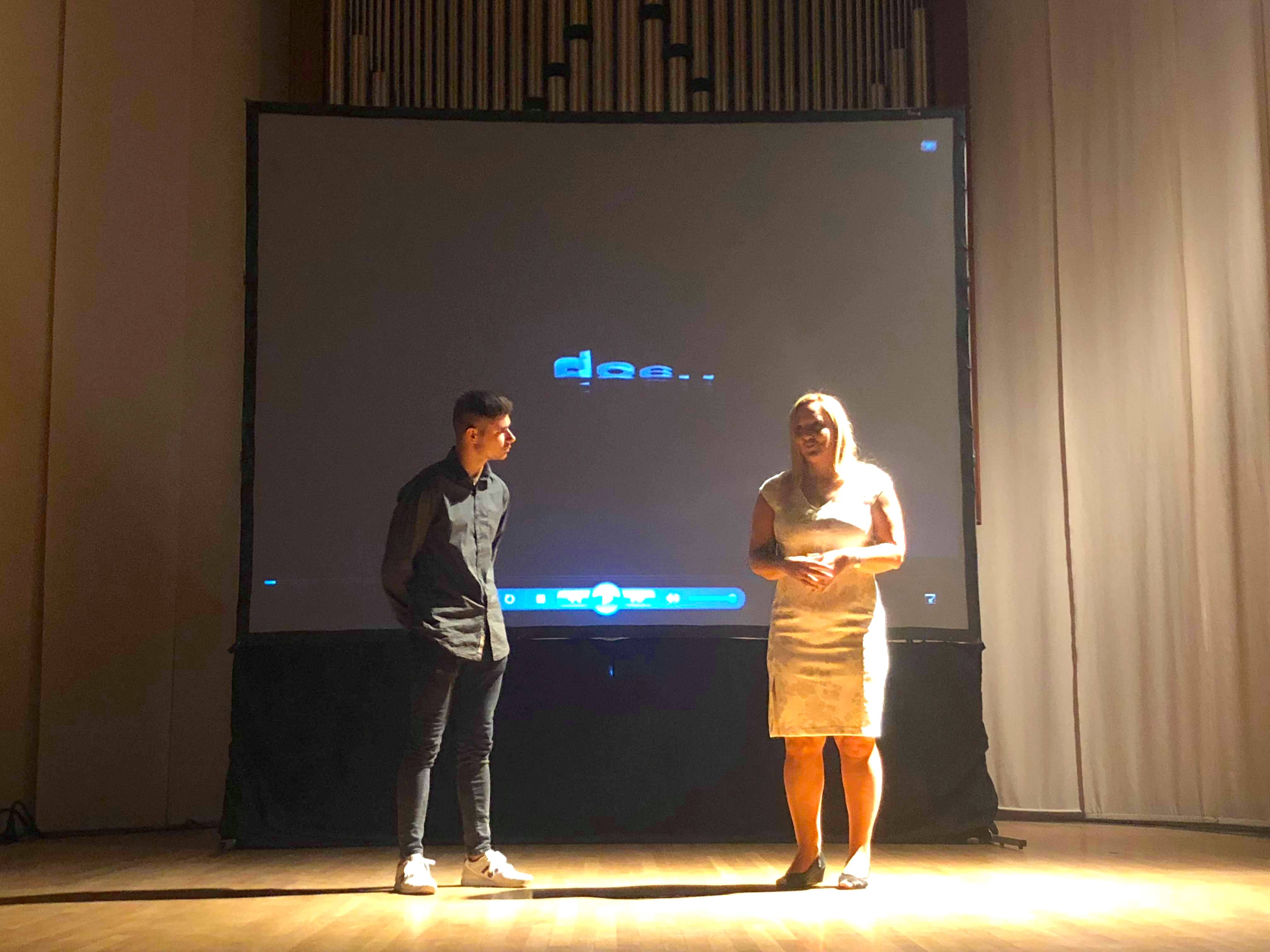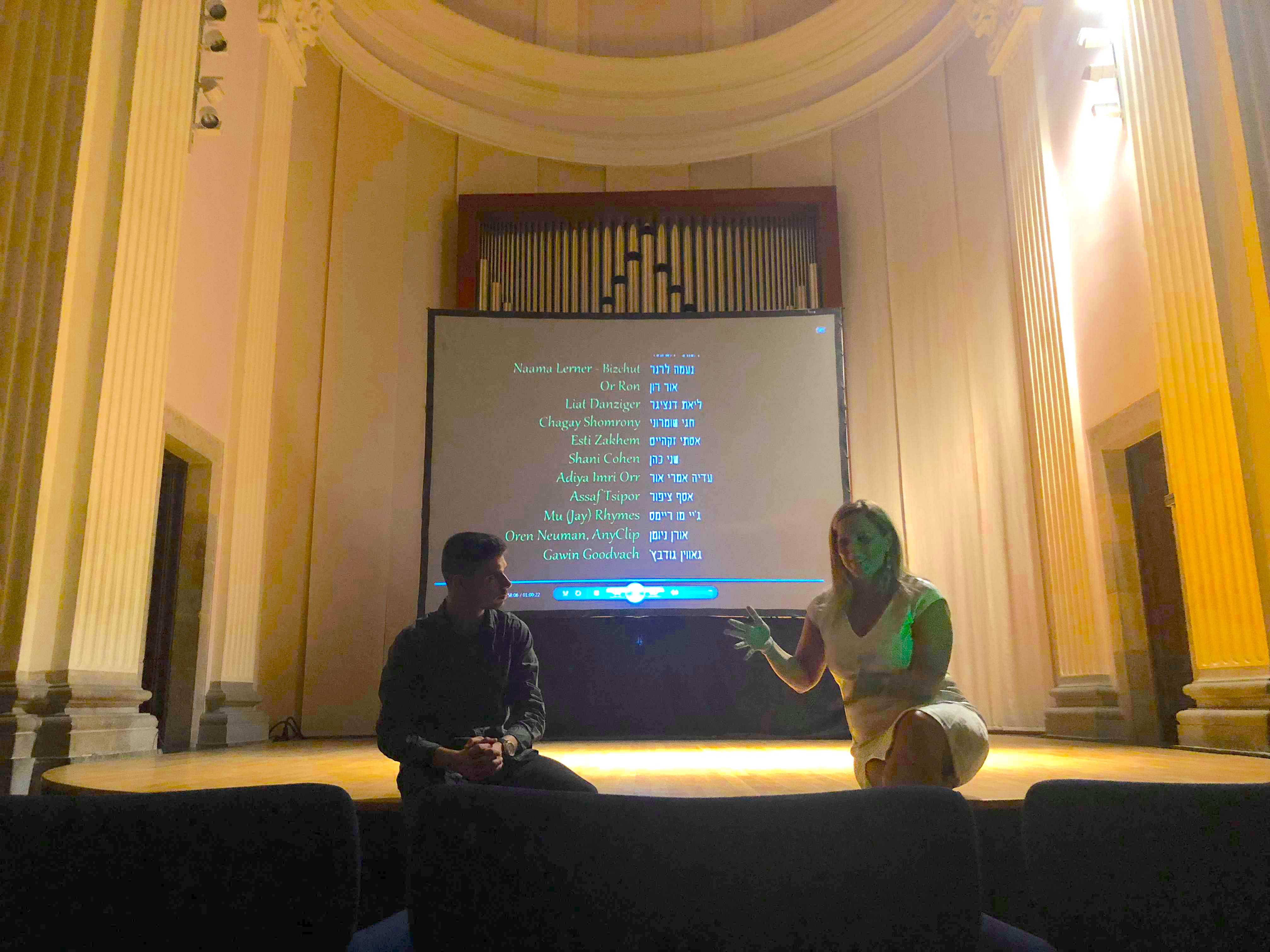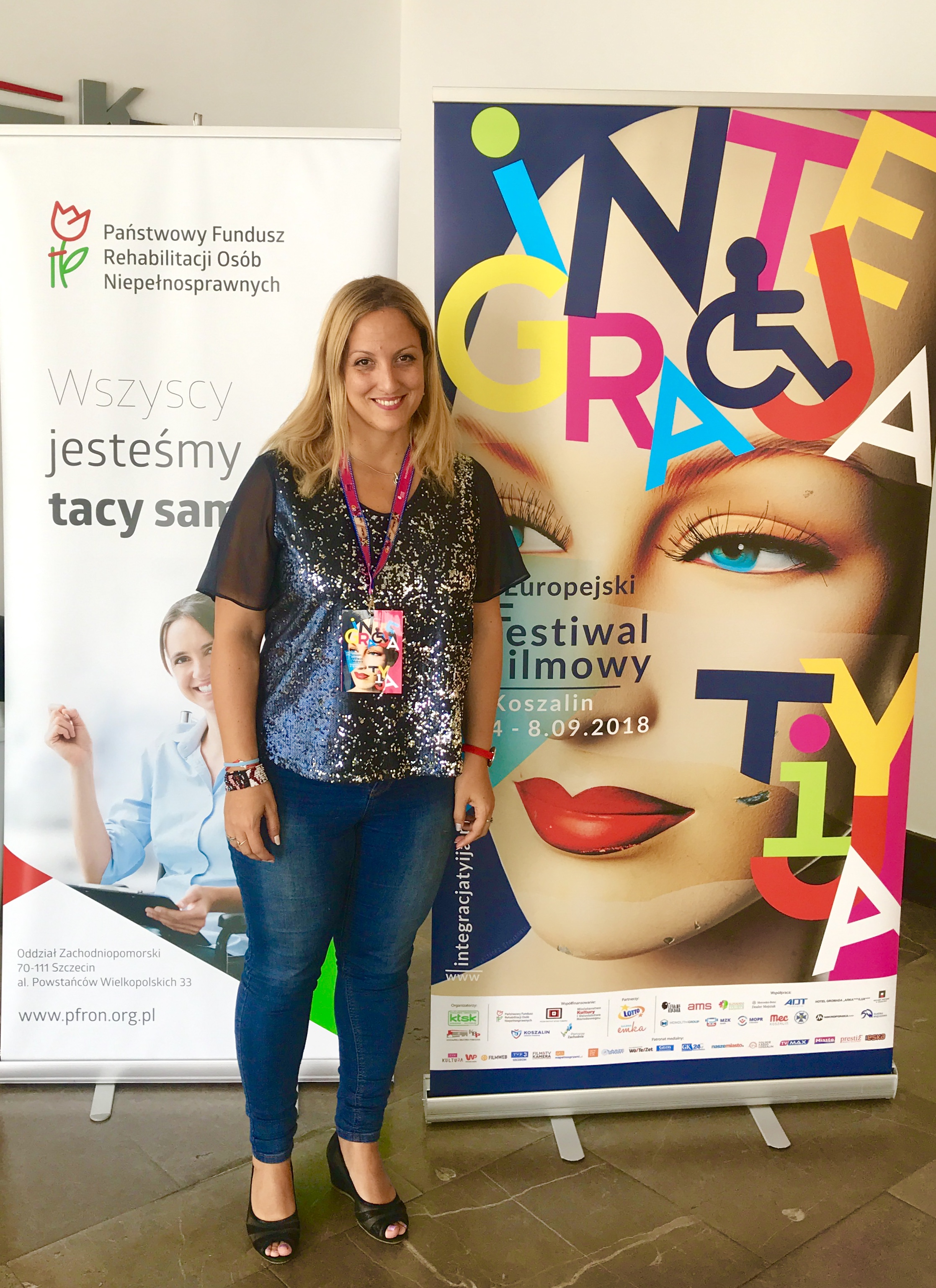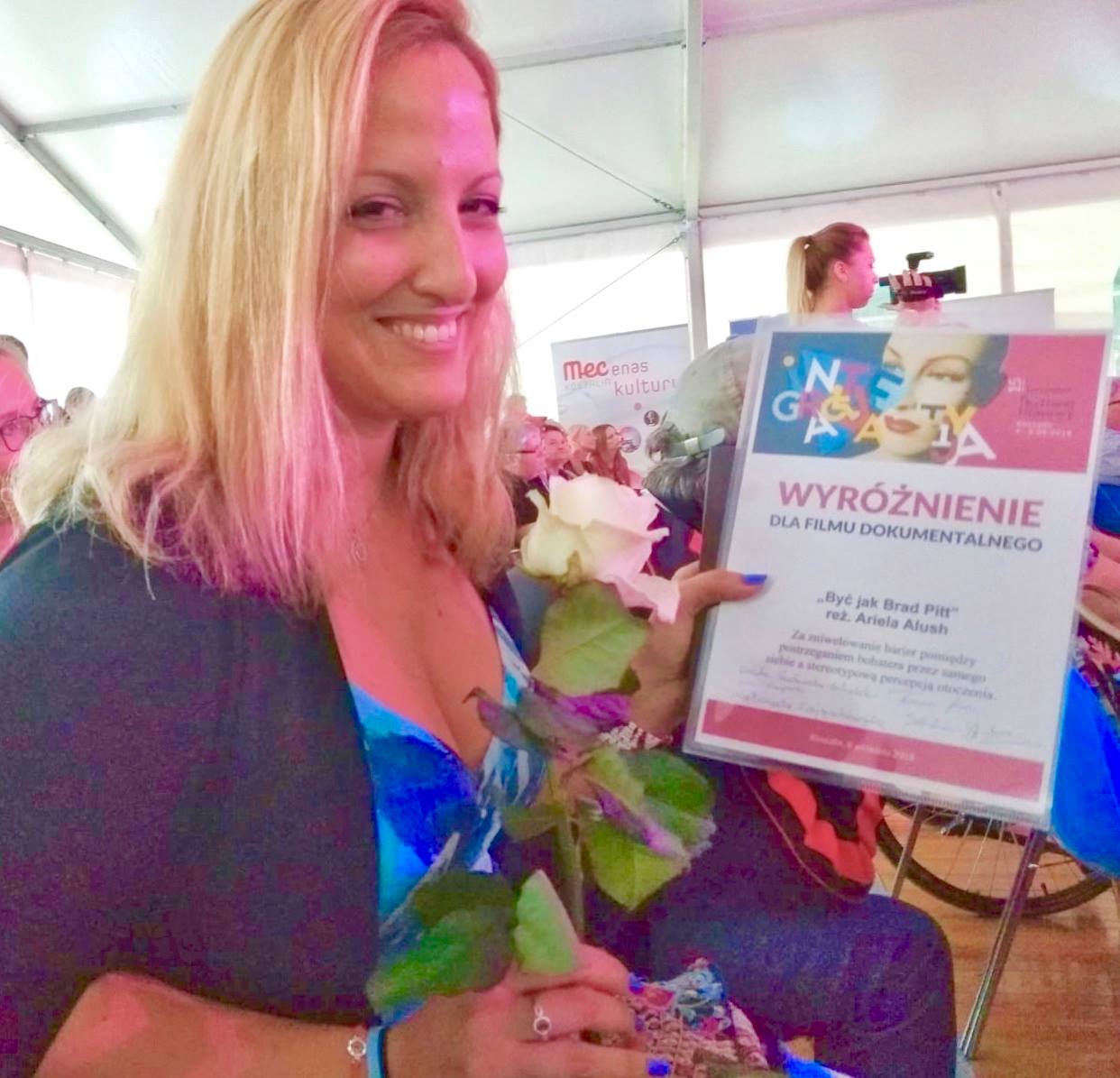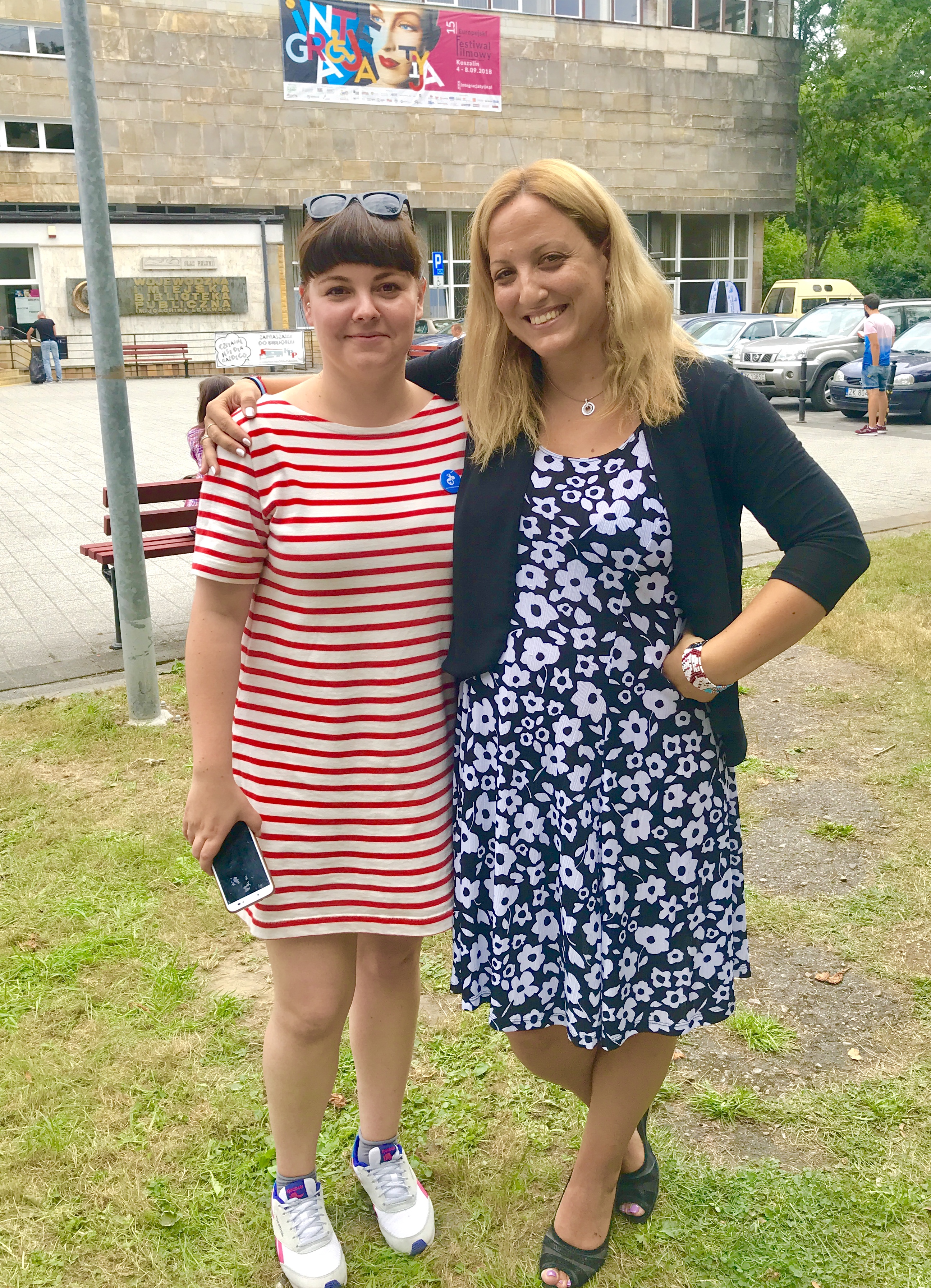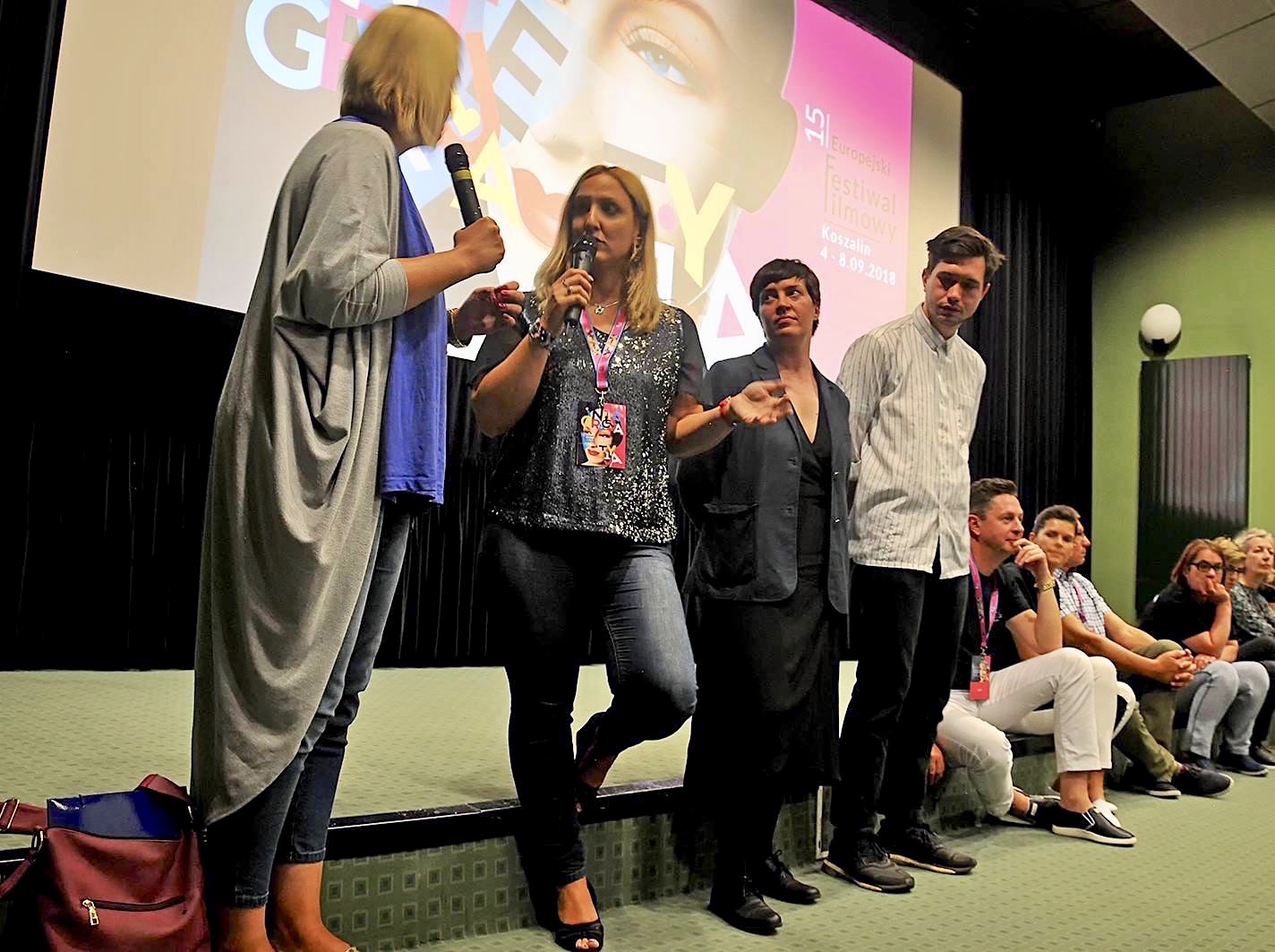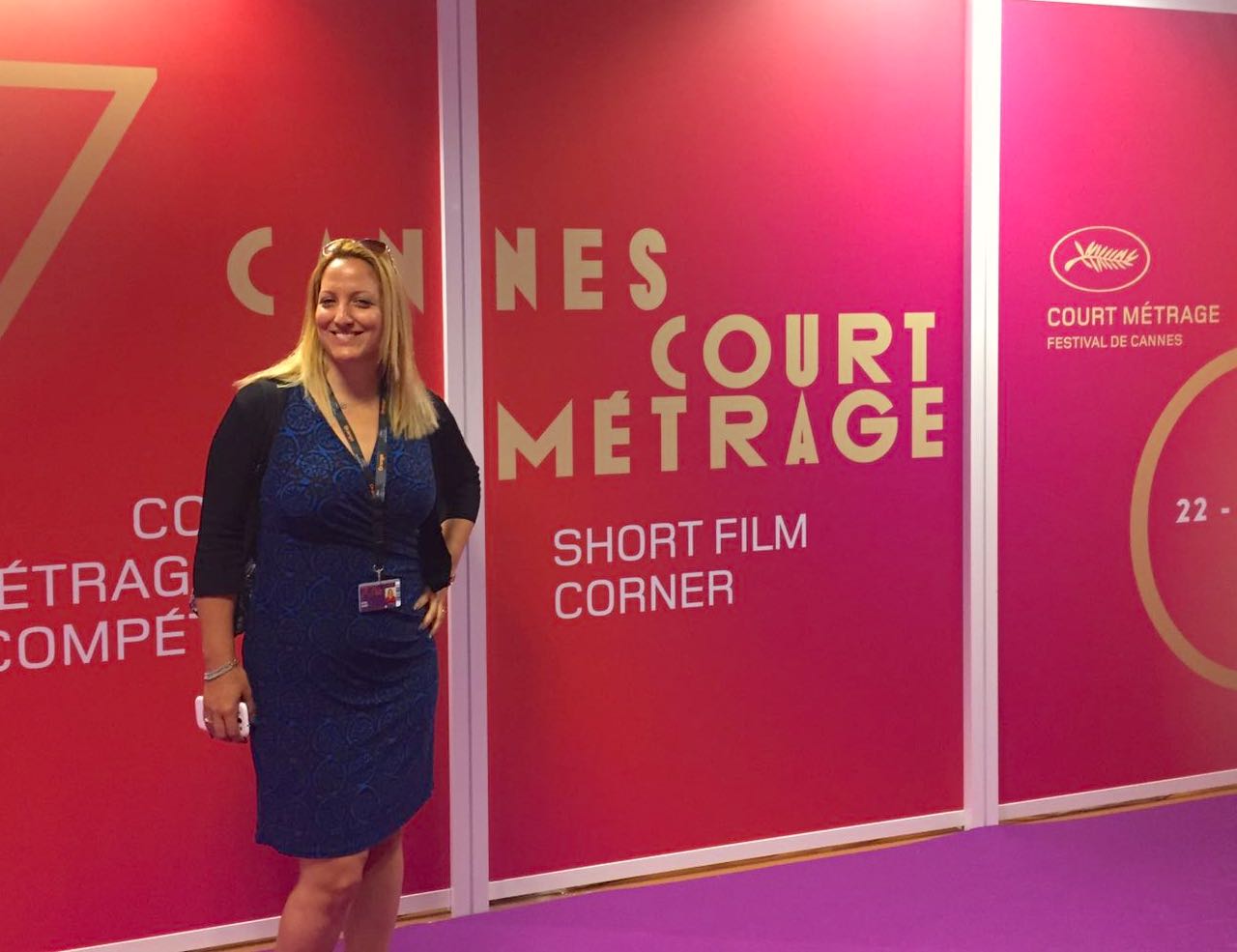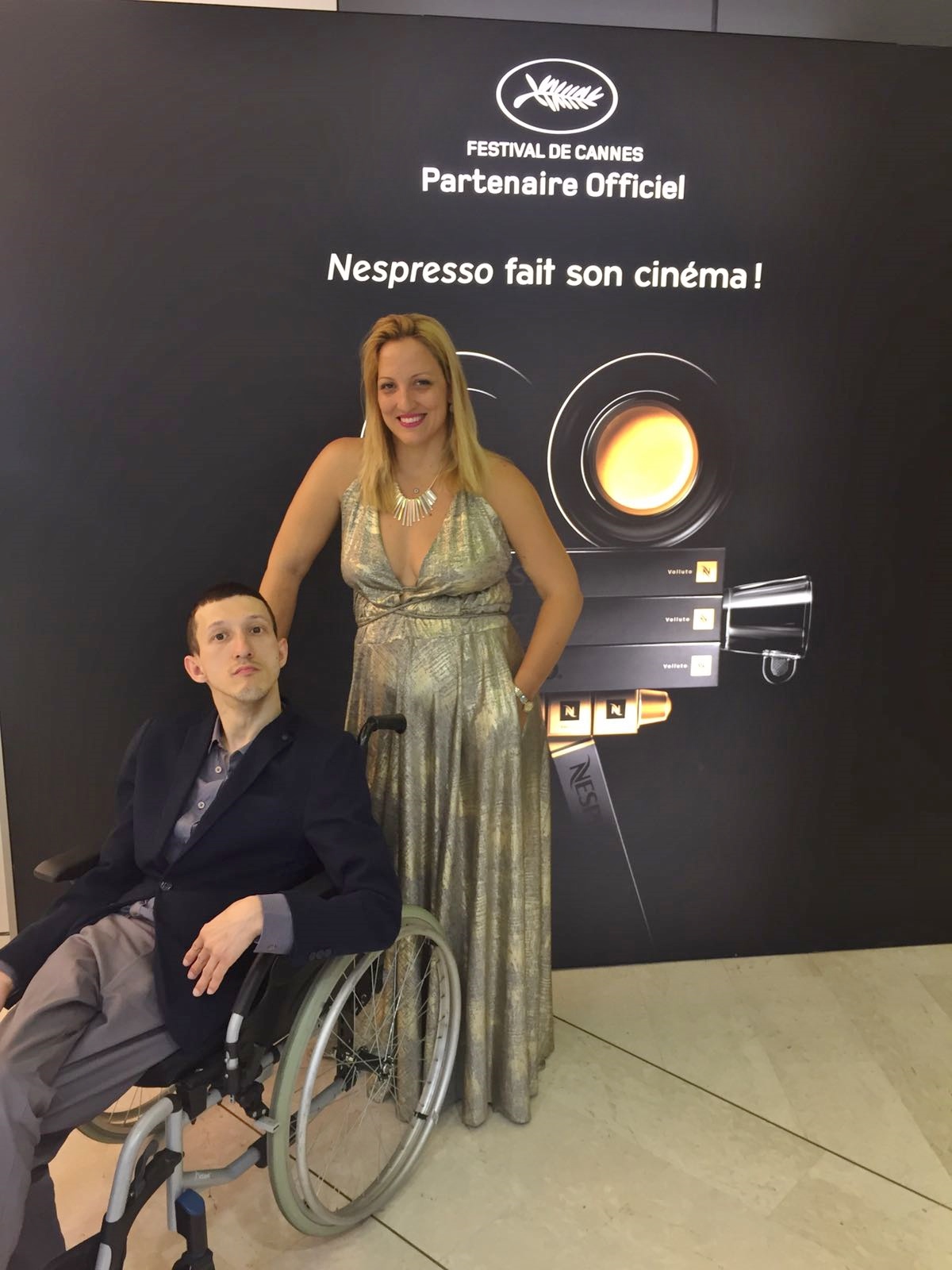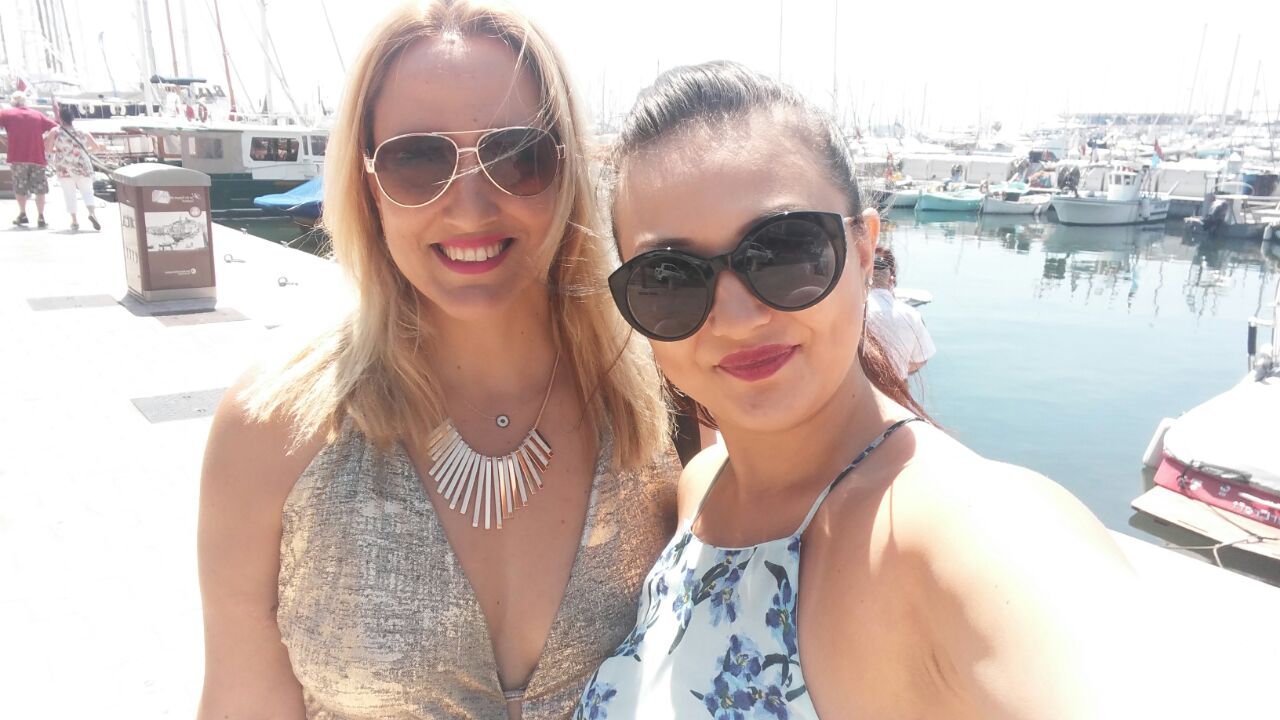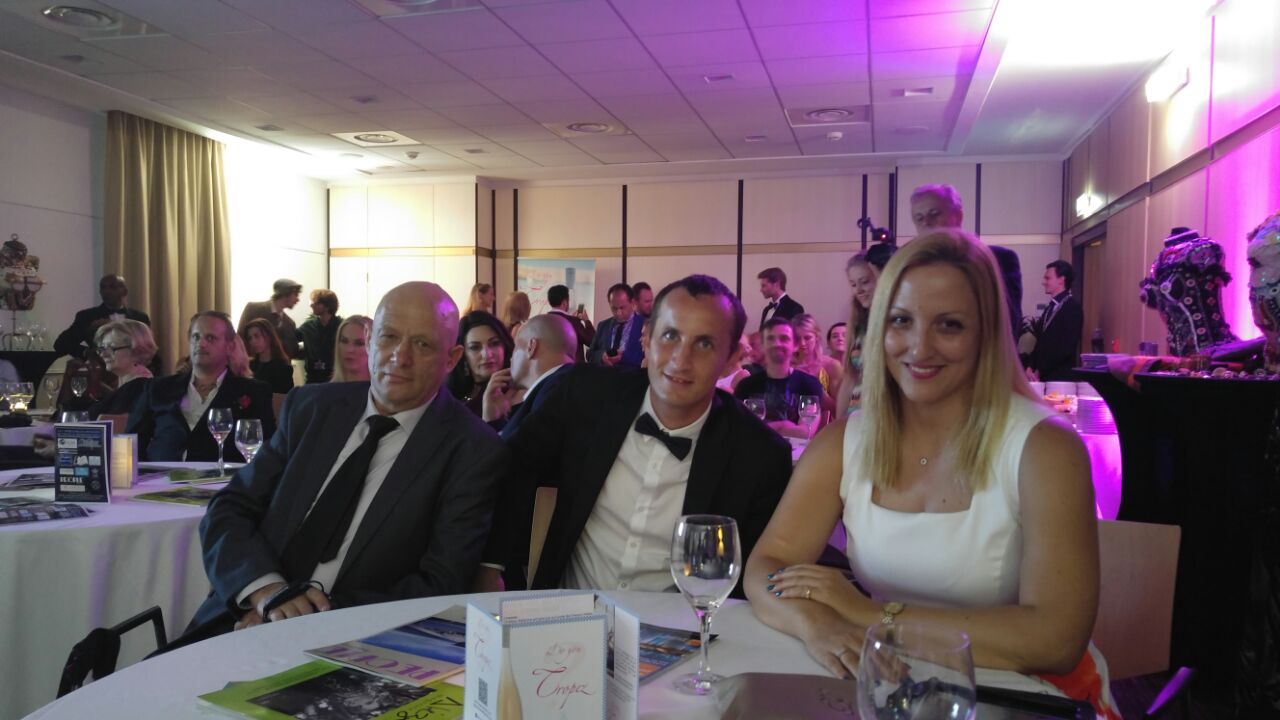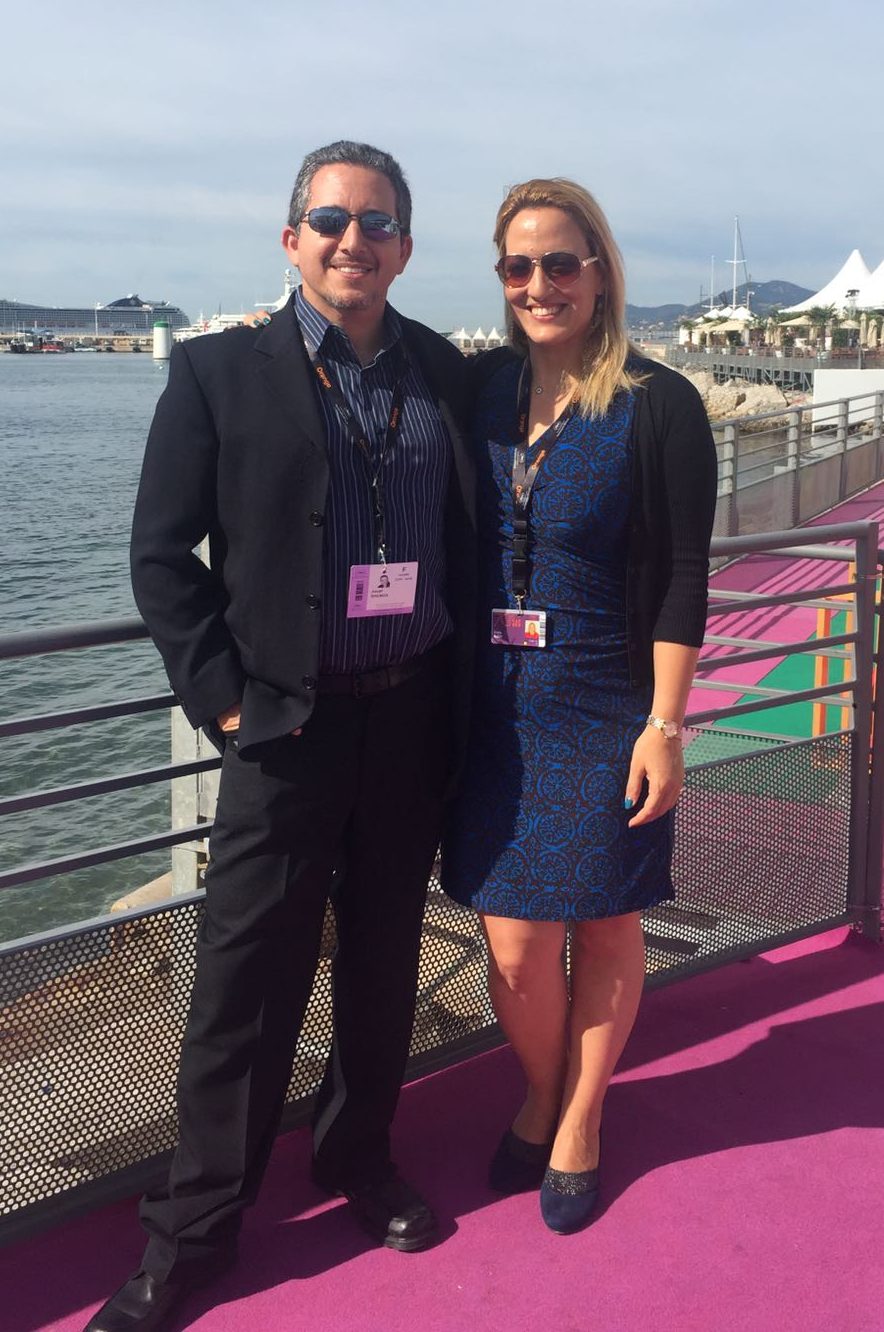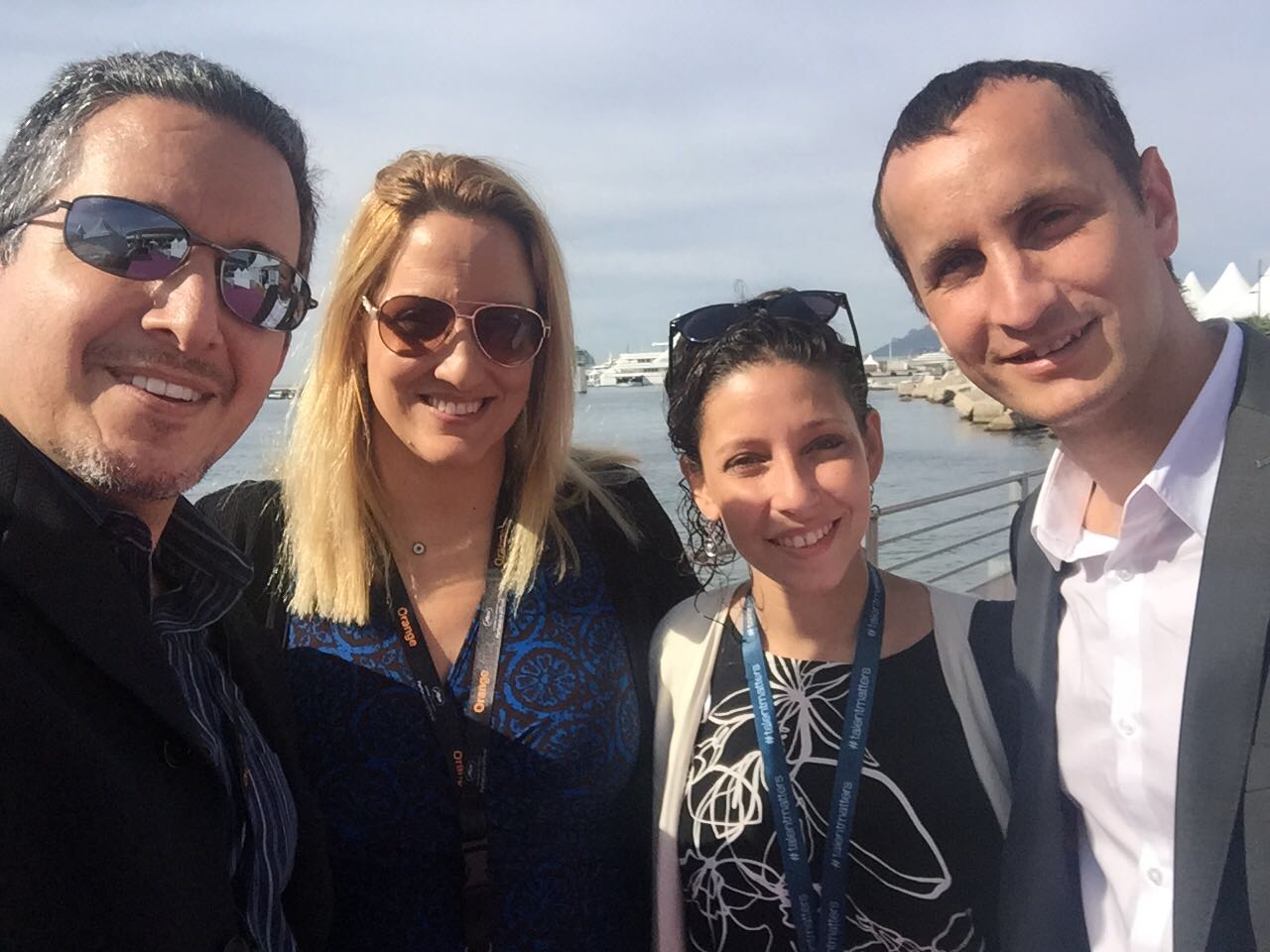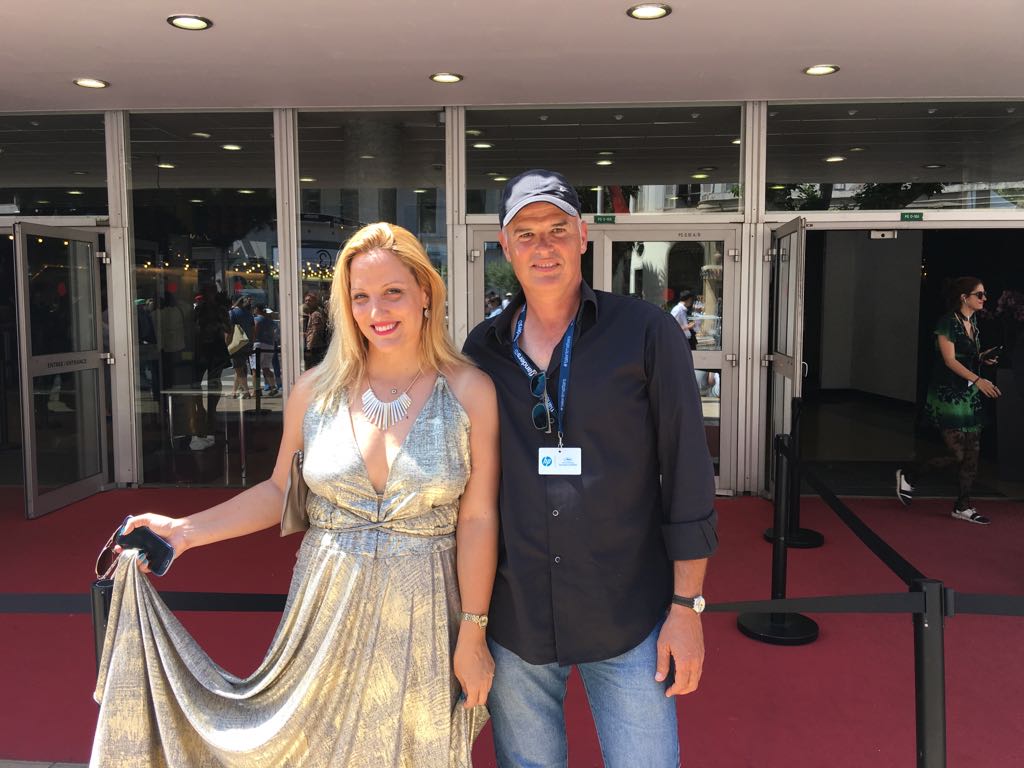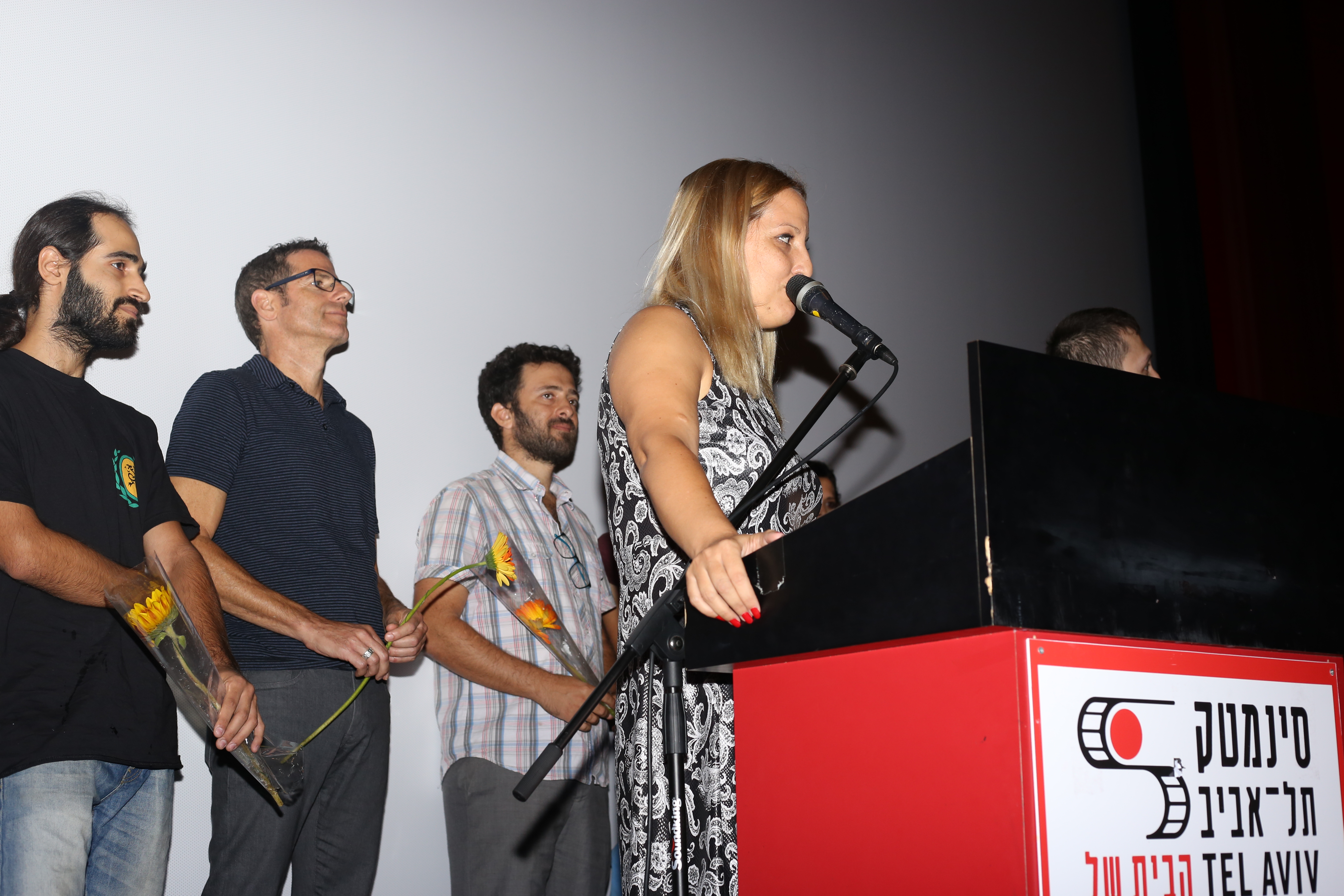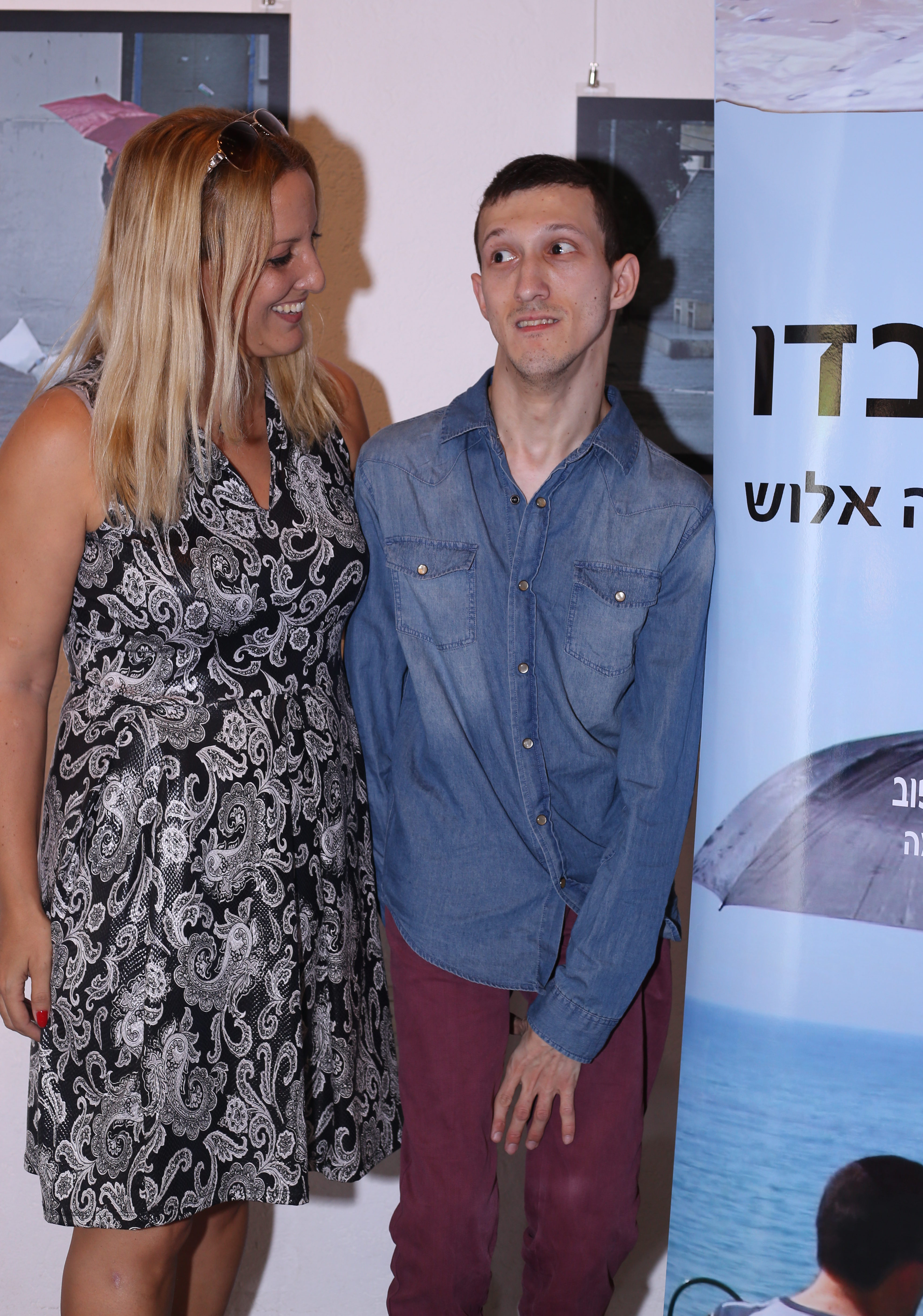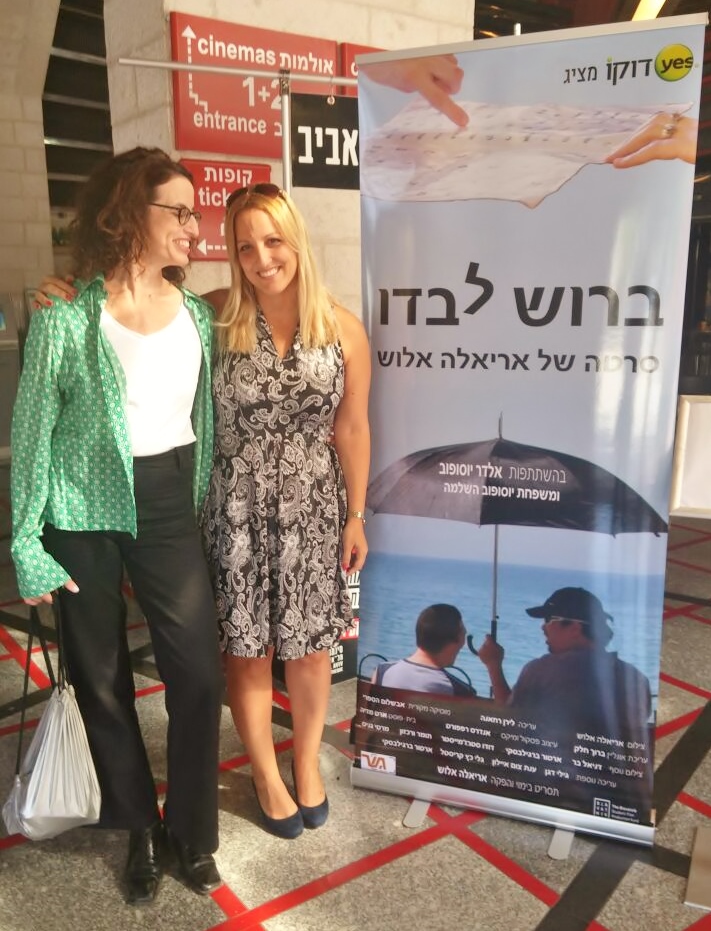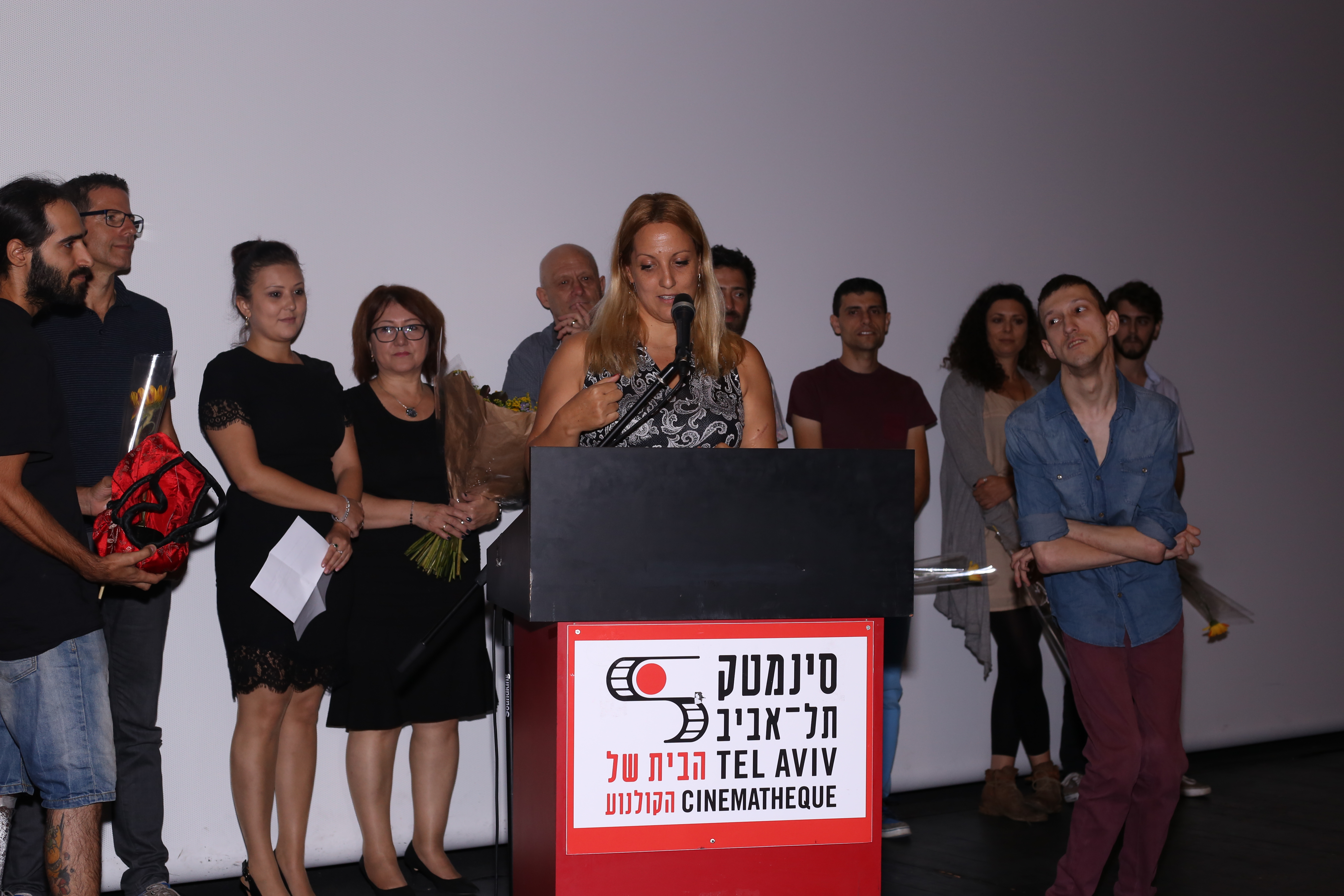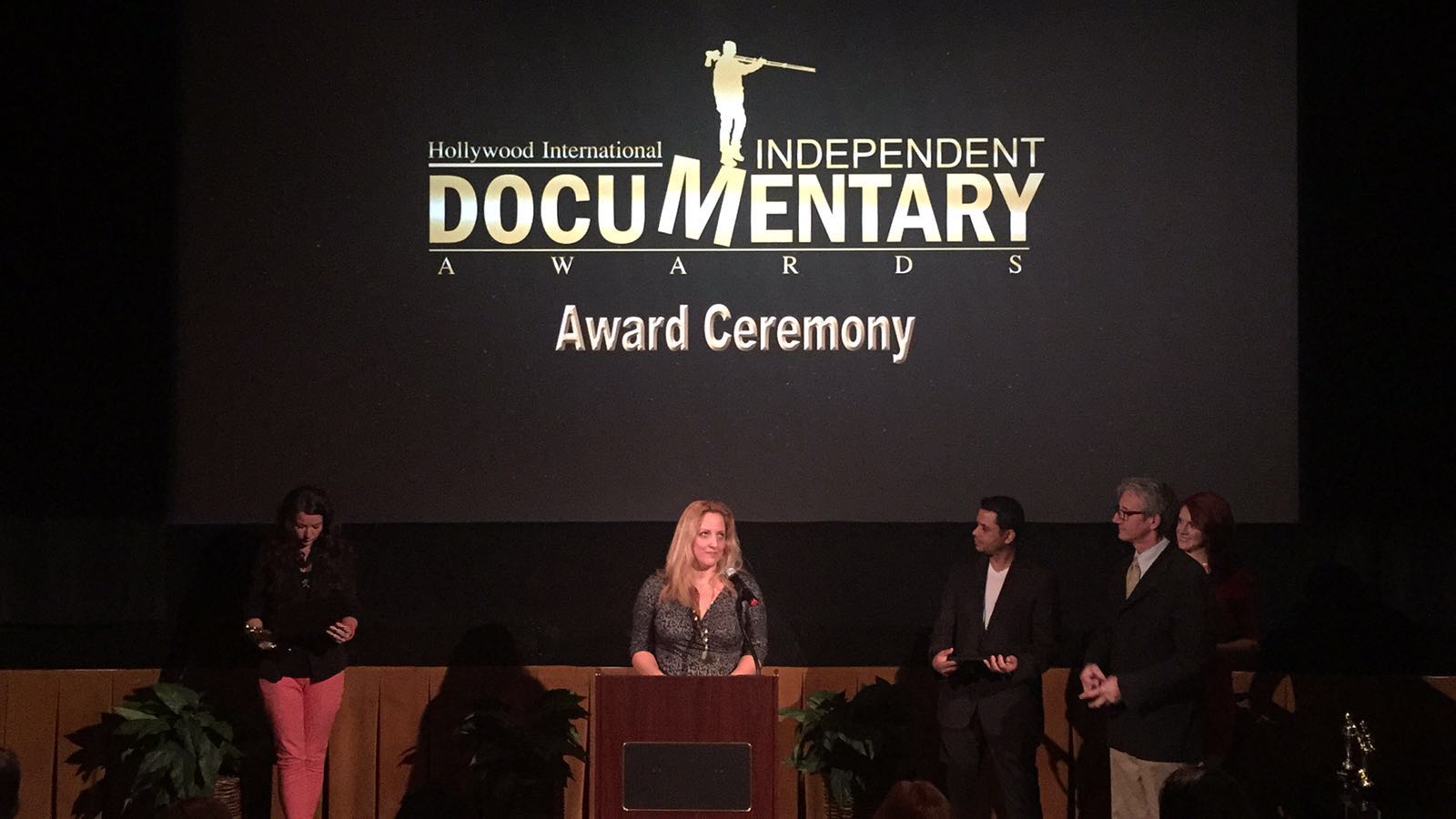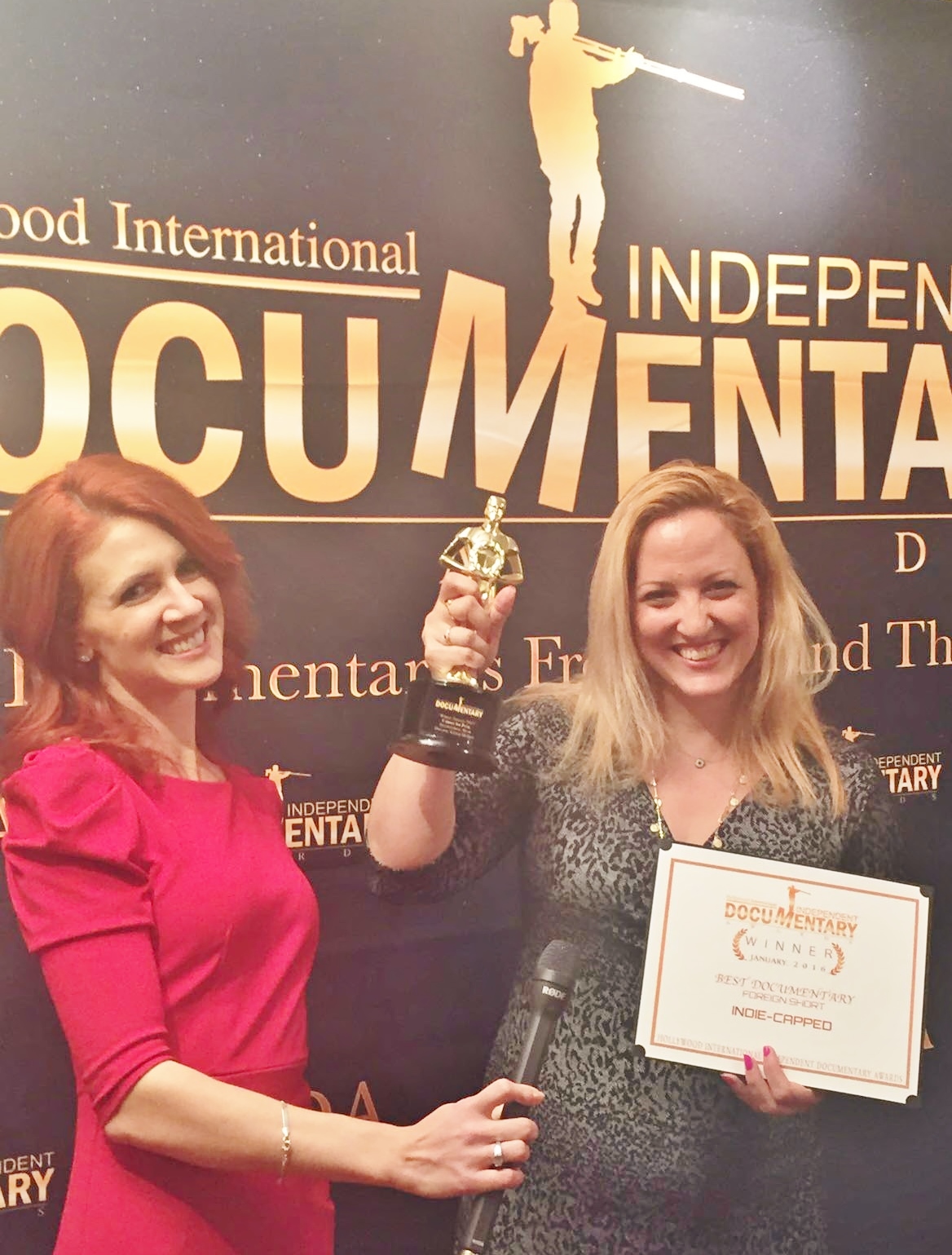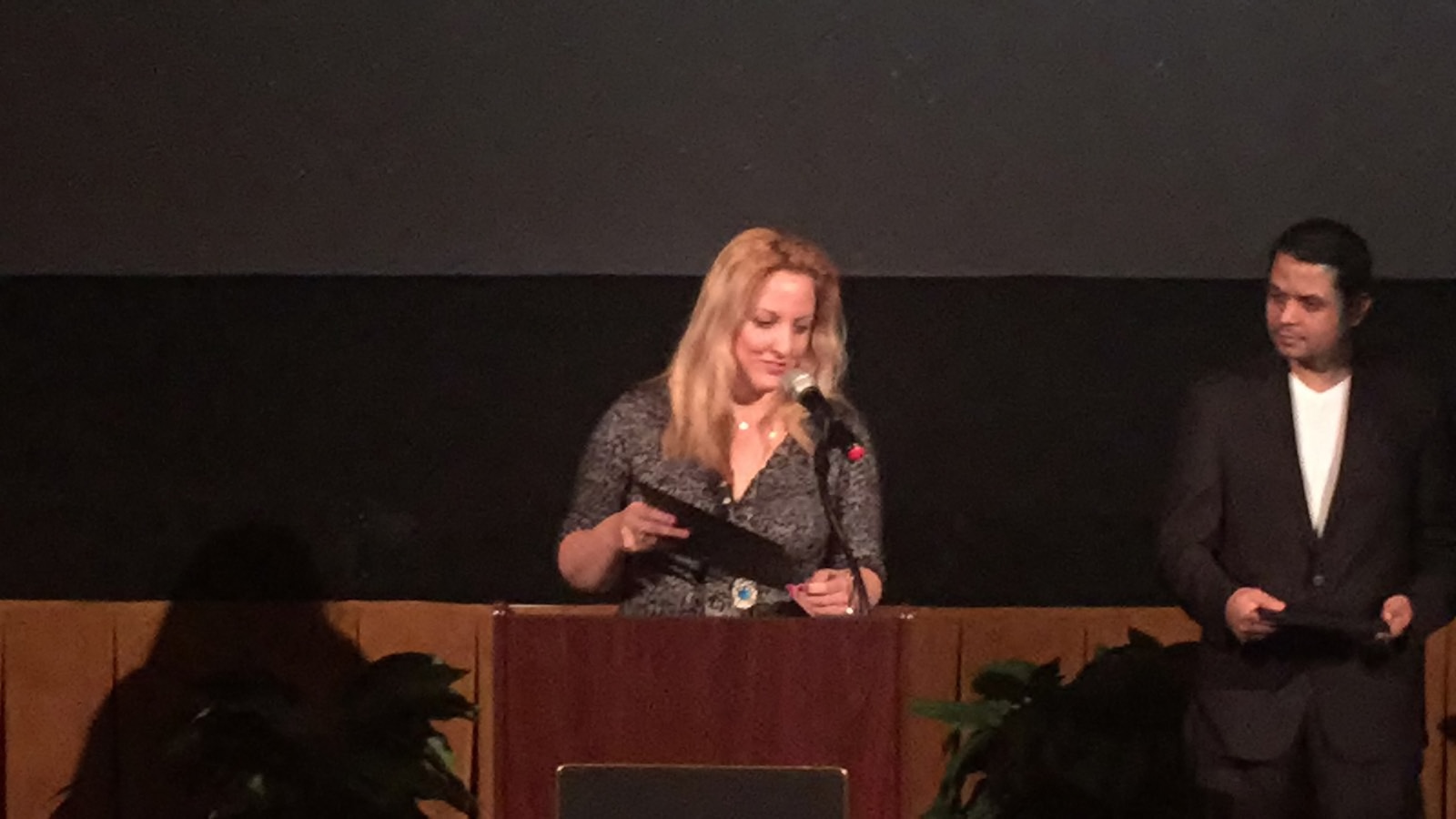Screenings
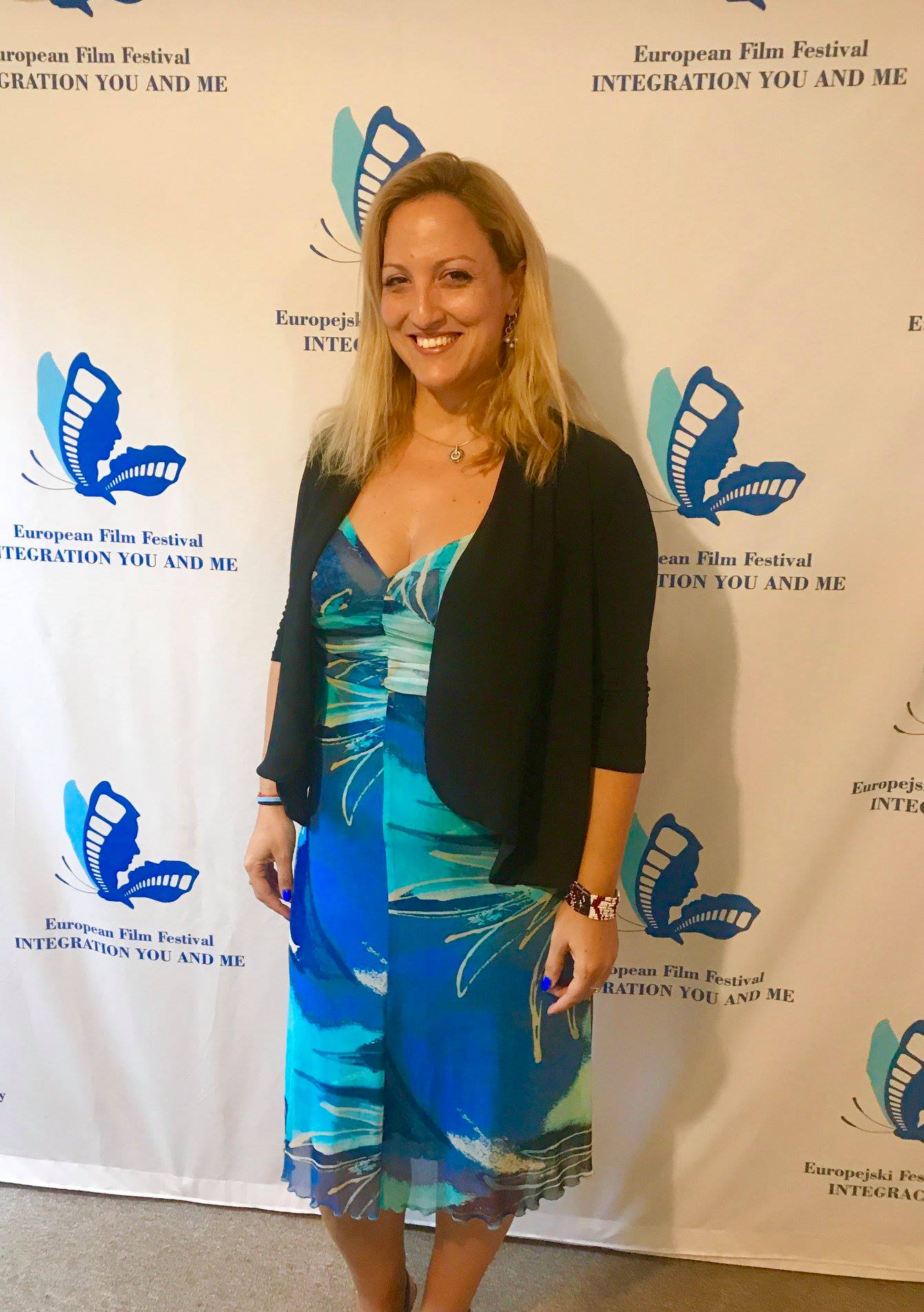
"Copy Brad Pitt"-Winner of Special Jury Award

"Copy Brad Pitt"-Winner of Special Jury Award
Articles
Women in the Industry: Director Ariela Alush
June 18th, 2017
Ariela Alush, director of the movie “Indie-Capped” (“Brosh Levado”), has returned from Cannes Film Festival where her film was screened. Despite the tremendous success and buzz the film garnered, she doesn’t rest on her laurel’s and continues to diligently work on her next film.
Tell us about your latest film “Indie-Capped” that was screened at Cannes
The film tells the story of Eldar Yusupov, a writer and filmmaker, that due to Cerebral Palsy from birth doesn’t speak and his entire communication with the world is through writing on an Alphabet board. Throughout the film Eldar struggles for recognition as a filmmaker, while also fighting for his independence, living in an apartment of his own despite his parents’ disapproval. It’s sort of a coming of age story of a disabled man who perceives himself to be a super-hero and yearns for society to give him the opportunity to take part in it.
Tell us a little about yourself and your past in general
I grew up in Ramat Gan in the eighties. From a young age, my parents realized that in order to calm my temper they need to let me create. I always had a pencil in hand to write stories or poems, or to draw. I participated in every artistic class offered in the neighborhood – ballet, jazz, keyboard, drawing and sculpture, and choir. I always found the channel to allow me to publicize my story. At age 11 I won first place in a city-wide songwriting competition, at age 12 I won a young talent competition with a song I wrote and composed in English, sang and directed the staging of the musicians. Both in elementary and high school, I was socially active, taking on every artistic initiative, and at the end of senior year the school principal approached me and told me they are giving me a scholarship to Beit-Zvi school if I get accepted. Of course I was accepted, and studied there for a year, until the moment came to decide whether I want to enlist in the army or be an actress. So having a can-do attitude and a strong will to give back to society, I left acting for an officer’s uniform and a Mamram analytical mind. Fortunately for me, I had an easygoing commander who trusted me and allowed me to audition for the C4I Corps choir, to which I was also accepted. This way I had a military position as a computerization officer, and I would occasionally leave for rehearsals and performances with the group. After the army everyone around me had the same motto, saying “acting is not a profession,” and affected by my surrounding I continued on an analytical track working several years in Hi-tech. The urge to create burned inside me again and I went on to get BA in Communication and Management, in order to learn to better manage all my creative outlets, and because I naively thought as a 22 year old, that communication studies will help me learn how to better communicate with the world.
When was the moment when you realized you wanted to be a film director and how did you work towards that goal?
I’ve always had a lateral vision of how the story should look, sound, how the leading character needs to feel in order for the audience to feel. Over the years I worked on several productions in various roles of content and production, until in one of the productions where I worked as a producer, I gave one of the actors a small tip about his acting, which turned into a whole session on character analysis and he really thanked me for my comments which allowed him to be more precise with his acting. After he attempted the change we worked on during filming, the director really loved it. So I realized I do know how to help other actors be more precise with their delivery and their internal connection to the character. But I thought no one would easily give me the opportunity to change roles, because after all, the director is the most important position on the film set and requires a certain path of expertise. So mid-life, age 32, I decided to go back to school and get a Master’s Degree in film. I think the greatest price I paid for this decision was going back, to -3 points in my career. I put in so much thought and soul into every exercise and screenplay that I drew away a bit from the rest of my life, in a soul-actor method of totality. So you can say that today I’m a soul-director, and I think it shows in my film.
What’s it like being a female director in an industry where most directors are men?
It may sound strange, but I never felt like I needed to behave any differently from my natural behavior just because leadership on set was male. I never felt like I need to accommodate myself into a certain pattern of behavior just because I think that’s how a male director would act. I grew up with brothers, and we always each had a place to express our thoughts and emotions, in quite a dominant way I might add, so I’m sort of used to attention and cooperation from men. A worthy collaboration should not be measured by whether it’s a man or a woman, and what matters is the creator’s voice and each director’s own personal signature. What matters to me as a director is that the production surrounding will be attentive enough to my direction, and with the right team to allow harmonious work, it really doesn’t matter if the leadership is male or female. What I can say for certain, is that when a woman leads the story, there’s a whole different take on the situation, the narrative thought is less linear and allows for more voices, emotions and conflicts – which in the end creates a more interesting drama.
Have you encountered any challenges in being a female director, and if so which ones?
I haven’t encountered any difficulties in being a woman. On the contrary, I believe female leadership skills are an advantage in a place where there are ego clashes, which is very common in the film industry. On second thought, maybe it’s common because not enough women dare to lead film sets, or are not given enough opportunities to lead outside of film school. Like I said, when you’re determined enough to succeed on a project you took on, and believe in your story even when others around don’t quite understand what it is in its early stages – it doesn’t matter whether you’re a woman. You just have to follow through with your truth.
Do you as a female director feel responsibility to tackle certain issues in your films?
Not at all. A universal human-interest story can speak to everyone, whether it’s a male or female protagonist or a group of people. I feel responsible to publicize good stories because they’re good not because they’re about one gender or another. At the end of the day directing is not about the “what” (that’s more the screenwriter’s job), but about the “how”. Or more precisely, how much the “how” faithfully serves the “what”. And if a female audience reacts differently from a male audience to the same story and the same delivery, that’s great, and in the same way you and your friend could react differently to the movie and you’re both women.
How do you choose subjects for your films?
The stories which draw me in are usually those based around fascinating characters. An extra-ordinary personality of the protagonist, unusual people carrying an existential rock up the mountain or coping with a difficult fate which they decide to challenge. I’m interested in showing the journey these heroes take despite their fears and weaknesses, a victory story despite the hurdles along the way and mortal heroes that can provide immortal inspiration. In short, a modern-day Greek tragedy.
What has been the most challenging experience for you as a film creator thus far?
For several years I would regularly take out sailboats with a group of terror attack victims from the “Tikva” Foundation in the “Challenge” sail club. Throughout those years I met many people with various disabilities and heard stories that amazed me. It was long before I went to film school. I couldn’t understand how come we have such heroes in this country, bringing in medals for their accomplishment and no one knows about them. I had to tell these people’s story. So I started shooting them around the country: three sailors with missing limbs, a blind track athlete, and a cyclist paralyzed from the waist down. When the Beijing Olympic Games began, of course I had to be there – I rented a camera, I got on a plane to China, and I started documenting my heroes. I was alone, with no funding by any broadcasting company, running around all day like a madwoman between the Olympic village and the event sites, taking taxi cabs with Chinese drivers who can’t speak English. It was insane. The cyclist got injured on the day I arrived and flew back to Israel. The sailing site was several hours plane flight away from the Olympic village so I sent one of the crew members I knew from Israel with my own private camera to record the competition simultaneously with me. I followed the marathon runner, running a marathon of my own all through Beijing, taking cabs, busses and trains, as he runs with his guide through the city’s running track – so that I could always reach the photography stations I wanted before he did…it was a suicide mission. And of course after the entire Israeli crew returned to the country I stayed back in my hotel with a 40 degree Celsius fever for two more days until I returned home completely exhausted. So I had an amazing view from the plane over the mountains of Mongolia, but these materials are still waiting for me to sit down and edit into a movie.
Are there any issues you would never make a movie about?
I believe in “never say never” because it’s not the issue that matters but the perspective and the manner in which the story is told. I always choose a new point of view, turning every stone in the screenplay to show something different than what we’re used to seeing. One of the reasons my movie took so long to make, apart from me wanting it to be authentic and waiting for the events in the hero’s life to actually take place – was that it took time to accurately depict the story teller’s point of view. It was very important for me to bring my protagonist’s true voice forward, and I didn’t want it to be another film about a disabled person – told from the perspective of a friend or family member – because then I’m a sinner to the cause of my original intent for this film, which is to bring forward my hero’s creative voice and show it to the audience – despite of him not speaking and in spite of his disability and him used to not being seen or heard. And yes, it was very difficult to find a solution for this ambitious angle I was aiming for, but at the end I’m glad I chose to tackle this challenge of a complex issue cinematically speaking, but one which is very present in all of our existences.
What’s the next project you’re working on?
My next film is the film for which I went to film school, which I’ve been writing for a very long time. It’s a very special project based on true events that happened to me throughout my life, and I don’t know if I can call it a disability but it will deal with our ways of coping with human weaknesses and how by choosing to overcome them we always come out winning. It’s also going to be a movie depicting a certain segment of the population whose story is rarely told, and will also offer an empowering and moving human message. Because that’s how I choose my stories, if it doesn’t move me how can I move others? Throughout my journey and my experience in working on different genres I realized there are different kinds of “moving” and what’s important is learning which one to use and when. So my next film, which of course I cannot go into detail about, is an expansion on this idea. What’s left now is to choose the right collaborators and to set on this journey.
What’s at the height of your professional aspirations?
Directing Wonder Woman 3.I already know what the story is going to be!
Despite His CP: Eldar Yusupov Makes Movies
These days Eldar Yusupov, a graduate of the Tel-Aviv University School of Film and Televisio is hard at work raising funds to complete a comedic web series written by him and starring him. This accomplishment may be perceived as run of the mill if it wasn’t for this one small detail – Yusupov suffers from Cerebral Palsy and is unable to speak. In an e-mail interview he opens up about why he is no hero, and the importance of creative art about people with disabilities.
Nahum Didi
Published: April 17th, 2014, 08:14
At first look, it’s hard not to notice an uncanny resemblance between Eldar Yusupov and Facebook founder and CEO, Mark Zuckerberg. Unsurprisingly, a quick search on Yusupov’s Facebook page reveals that on Doppelganger Week he decided to change his profile picture for that of the man who changed our lives. Yes, that same Zuckerberg from before.
So true, a few thousand miles and a millions of dollars separate between Facebook CEO and Yusupov, but Yusupov, is discovered over time to be a man who makes significant changes not only to his own life, but somehow to our own as well. Exactly like that Zuckerberg fellow from before.
No Fear
These days, Yusupuv, a graduate of the Tel-Aviv University School of Film and Television, is hard at work raising funds to complete a comedic web series written and starring himself, that takes place in Tel-Aviv. So far Yusupov managed to produce a first episode that’s even gone up on YouTube.
This accomplishment may be perceived as run of the mill if it wasn’t for one small detail – Yusupov suffers from Cerebral Palsy and is unable to speak. He therefore finds other ways to communicate with his environment. As you can see from his YouTube episode (click “Out of This World – Web Series Pilot” to find it), these challenges don’t stand in Yusupov’s way. On the contrary, he allows himself to laugh at them.
“The series tells the story of Dudi, a disabled boy who decides to run away from home and move to Tel Aviv,” says Yusupov in one e-mail correspondence, one of the only ways to communicate with him. “There’s a gap between what society thinks of him, and his own perception of himself, and it brings to life comedic events and situations. The purpose of this project is to raise a new perspective on disabled people in the eye of the public.”
Yusupov’s amazing story starts in Uzbekistan, where he was born 27 years ago with CP which was later discovered to be the source of his lack of speech. Since Uzbekistan has no educational institutions for the disabled, and since he didn’t fit in in a regular classroom, he was forced to stay at home until age 12, surrounded by four walls, watching through his window as all the other kids attend school.
His life took a turn around the year 2000, when his parents decided to make Aliyah to Israel, which opened him to new possibilities. For the first time, he was able to integrate into the school system, going to On School, designed for people with physical disabilities. But, since the school doesn’t offer a full matriculation program, Yusupov wanted to transfer somewhere that does. Only after ongoing battles with the Ministry of Education he was accepted into Marom High School at Kfar HaYarok, where he completed his studies with full matriculation and a grade average of 103 (!).
This gifted guy didn’t stop there and set his eyes towards academia, with the goal of studying film. When he saw that in Tel-Aviv University he also faced admission problems from the Dean of Students due to his disabilities, he decided to make it very clear to her in a cut and clear message: “If you don’t help me out, you’ll have to entertain me in your office, because I plan on spending the night here until I get a positive answer.” Finally, the Dean was convinced and vigorous Yusupov successfully completed his degree.
About a year ago, he decided to move out of his parent’ house and into his own apartment in Jaffa, with a caretaker at his side. It wasn’t easy in the beginning for his mom and dad to accept the fact their boy wants to leave home, but Yusupov was determined, and inspired by his experience began writing the web series he is now raising funds for.
“The series is a sort of call and cry,” he explains. “Many people ae scared of the disabled, disgusted or pity them. Through this series the public can see disabled people from a slightly different perspective, and not from a perspective of pity or bravery. I intend on filming four or five episodes and putting them up on Facebook and YouTube for greater exposure.
The thing is no producer is willing to invest in a movie or series about disabled people. You can see nonstop cooking shows, or a series about a guy planning a bombing attack and suddenly discovering he is Jewish and becoming religious or all sorts of things like that. There will never be a movie or TV series about disabled people. I think it’s a shame, because many social perspective changes come from TV.”
One Last Dream
Other than Yusupov’s stubbornness and unperceivable will power, the guy is also equipped with pounds and pounds of humor towards his surrounding and himself. For instance, when he tells his life story he starts with, “I’m an over-grown kid with a moustache. I was born with pretty eyes, a soft face, a cute nose and CP.” When he describes his life before moving to Israel, he writes that his time in Uzbekistan can be summed up in three words: “I stayed home”.
Other than that, his unusual looks, his twisted body and disabilities have never prevented him from making some impressive accomplishment and astonishing those around him time and time again. “When people see me on the street they think I landed from the moon,” he says. “And because of my attractive looks, people don’t treat me like a normal human being. On one hand it bothers me, but on the other hand it’s useful, because I can always surprise and awe people.”
“Do you think your success will bring others to also try to break some boundaries like you?”
“I don’t think I’m at the forefront of people with disabilities, nor do I pretend to be. But I would love it people with disabilities see me and the path I’m taking and get inspired. The thing is, it will take a very long time until society realizes we’re regular people.
The people who helped Yusupov’s success story materialize, apart from his determined personality and family, are the people of the Isaac Israel Foundation. It is a local branch of a global organization intended to promote and develop supportive and alternative communication in the country. The organization helped Yusupov learn to speak through various communication technology that allows the disabled ways to communicate with their surroundings.
“Communication is a field that concerns all the strategies for mediating information, even for people who can’t speak,” explains Hadar Zeltzer Fallah, Chairman of Isaac Israel. “Communication can be a simple board containing letters and words, or a high-tech tablet allowing disabled people to communicate with their surroundings. In general, it’s about technologies that enable access to language through various systems, whether it’s someone who was born with CP, or one who God forbid suffered a brain injury in an accident and lost his speech abilities.”
Yusupov’s unusual story did not escape the attention of Ariela Alush, a screenwriter, director and film graduate student, who has been following Yusupov’s story for over three years now with the purpose of making a documentary film about him. “I met Eldar three years ago when I attended a conference on disabilities in Barcelona,” Alush says.
“I saw what he was doing and the movie he made, and I realized that this is in fact his life story. Everything he is trying to bring out to the world is only a drop from an ocean-full of things he wants to express. In some way the film is trying to show that whether a man is able or unable to speak, the problem is not with him but with whomever is listening. I mean, at the end of the day Eldar does speak, but the problem lies within the fact we don’t always know how to hear his voice. Personally I think it would be a waste to the world if Eldar doesn’t express himself in the way he feels he should.”
Apart from all his activities, Yusupov is also a Boccia athlete. The purpose of the game of Boccia is throw a ball, close in size to a golf ball, and try to get it as close as possible to a larger ball. According to Yusupov, his first season of attempting the game was awful and he lost 14 games. In the second season he improved his skills and won his first tournament. But he explains that it was the losses that helped him gain a few insights on his life. “I took the losses hard, but they taught me a lot about life, and how to deal with failures and then get up and fight again,” he says.
So in the meanwhile, Eldar Yusupov manages to fail and get up again, express himself and generally meet every goal he sets for himself, and despite all the obstacles and challenges, surprise everyone around him time and time again. According to him, he has one more dream he wants fulfill: “start a family.”
The Power of the Camera
“Indie Capped”, Ramat Gan creator Ariela Alush’s first film, will be screened as part of the Cinematheque’s International Women’s Day celebrations. We talked to her a bit about how the touching documentary film came into being, following the determined journey of a young man with Cerebral Palsy.
Yonatan Doron
In honor of International Woman’s Day, Tel Aviv Cinematheque will screen today (Thursday) a range of films by Israeli female directors. One of the films, intended to show at 6PM, is “Indie Capped”, Ramat Gan filmmaker Ariela Alush’s first full length film.
The film follows Eldar Yusupov, a film student from Tel-Aviv University suffering from CP and handicapped to a wheel chair. Eldar wants to leave home and embark on a path of independence. Without his parents, but with a live-in caretaker. Other than the main protagonist, the film also introduces his family members, parents, sister Diana, and grandmother. I spoke with Ariela Alush about the film’s long work process.
How was this film created?
I met Eldar at the university, he was studying for his BA in screenwriting and I was studying for an MA in film directing. I was script manager for a project where he acted in the lead role based on a screenplay he wrote. I looked at him: “he can’t speak, isn’t socially involved, how did end up in this position where he is at the center of everything? I knew him from the hallways and he was always on his own. I started asking him questions. We got into a very interesting conversation, managed through an Alphabet board. The screenplay he was shooting was his own personal story. I asked if I could accompany him through the process. The next day I was over at his place with a camera.”
Shooting began on June 2010 and took five hears. Since then Alush was busy raising funds for completing the project and editing it, and even travelled with the film to film festivals all over the world.
What have been the greatest challenges in producing this film?
“The greatest challenge at first was not knowing how to touch on or tell this story in the best possible way. Another central and unique problem for this production was the fact that the protagonist doesn’t speak and we had to communicate through a special board.”
Fulfilling a Dream on the Path to Independence.
Alush says that because she and Eldar are both creative people, a special bond was formed, and not just with him but with the rest of the family members filmed and interviewed in the film. “It’s a special, warm family,” she explains. “They don’t treat Eldar as unfortunate or handicapped, but as a human being with commitments: he need to study, go out, find a job, it was different from what I expected from a disabled person’s family.”
It was not easy letting a stranger in their home, she admits. “At first they were reluctant, afraid to expose themselves. I think the bond formed as a result of the film between me and the family goes a bit beyond that of a director-subjects. All parties wanted it to succeed.”
After trust and intimacy were formed, Eldar understood that this documentation could work in his favor. “He realized that my camera has the power to change his reality,” says Alush. “The goal was to help Eldar break out of his handicapped position, and fulfill his dream of independence.”
“Indie-Capped”: A touching documentary on a fascinating hero
Eldar is a unique and brilliant film student suffering from CP. Director Ariela Alush documented his fight for independence in the moving film “Indie-Capped” – telling the story of her creative process in a personal column. Premier, Tuesday, November 1st, and on yesVOD.
I met Eldar in the hallways of the Tel Aviv University School of Film and Television, studying for my graduate degree. He wobbled in my direction, with a sparkle in his eyes and a permanent smile, which I wasn’t sure whether was a disability spasm or if he was simply happy to see me. He was happy to see me and wanted to tell me something, but I didn’t know it then, due to his obvious handicap. Like every person who didn’t grow up with disabilities, I recoiled and avoided communicating with him. Later, when I volunteered to be a script manager for one of the BA student films, I was surprised to see Eldar again, and learn that he wrote the screenplay and even played himself in the short film. I was amazed to see how a disabled man who doesn’t talk dares overcome fear of exposure to say what he has to say through his screenplay. At the very end of that shooting day I asked him whether he would be willing for me to accompany him at home with a camera. At first he was reluctant, but then decided to dare once more. In June 2010 I was already with a camera on set.
Eldar’s family refused the exposure at first. His mother said it was fine if he wanted to tell his story, but she herself was not interested in being filmed. In time, when the family saw that I wasn’t filming in a “media” sort of way, but truly accompanying Eldar without “interrupting” his life, and that as a result we formed a special and positive bond- they agreed to take part in the filmed situations.
Another thing that helped Eldar and his family open up and reveal themselves to me was my conscious decision not to treat him as “disabled”. After I saw how he writes and what goes on in his mind behind the physical “CP”, I realized he was just like me and everyone else I knew. He only suffers from a physical handicap that prevents him from doing all sorts of things like holding a cup of coffee or expressing his feelings. So there’s no reason for me to treat him in an intimidated or pitiful manner. Therefore I wasn’t “careful” around him with the camera, nor did I push myself into places I didn’t feel the story required me to. I gave Eldar room to decide when I can film and when I can’t, just like I’d respect any interview subject in any other film. He didn’t always allow me to film so easily, and in places where I had to get the scene after all, we negotiated in a sincere an elegant manner, just like I would with any other film.
But without a doubt, unlike movies where the heroes communicate, Eldar posed a difficult challenge: how do you convey to the audience a hero which in Hollywood terms is not aesthetically pleasing, nor does he speak. Throughout the entire shoot and the endless hours in the editing room, I wracked my brain- because I didn’t want him to have a “translator” sitting next to him and telling the camera what he’s saying every minute. I wanted to reveal his inner voice to the world, his amusing and surprising creative voice, the one that thinks different – not because his body is twisted but because he’s creative and insanely funny. I was determined to bring forth his authentic voice and once we found a communication board as a solution – the director in me was overjoyed. The editor in me – less so, because I needed to edit an interview that took place on a communication board over two hours and come out with a half a minute without exhausting the audience. I told myself that just like I developed patience to listen in a different manner throughout the film shoot and found a treasure, I would find a way to convey this treasure to the audience. Judging by audience reception up to now, it seems I’ve succeeded.
Because of the growing difficulties we faced working on this film (Eldar had a hard time filming over long hours because it required physical effort of him, and I had a hard time “listening” in the way I needed to while filming) – a special bond was formed between us. Just like in a romantic relationship, through our joined determination to overcome our fears and challenges and due to the natural intimacy formed when you dive in together to search for the truth within the soul – we formed a bond beyond one of an actor-director or hero-documenter. A bond of honesty, love, and friendship with Eldar and his family – which I’m sure will accompany us for many more years to come. Personally I feel like I won by meeting such an incredible family.
“Indie-Capped”, Premier, Tuesday, November 1st, 9PM, YesDoco and yesVOD
New Documentary film: Indie Capped
Eldar Yusupov is a film student, and he suffers from CP. In the film “Indie Capped”, Ariela Alush films his efforts towards independence. Ariela met Eldar in the Tel Aviv University Film School, where she also studied film. At first she had a hard time getting close to him, but later realized that he is sensitive and talented. Thanks to the film a bond of love and friendship was formed between Ariela and Eldar and his family.

